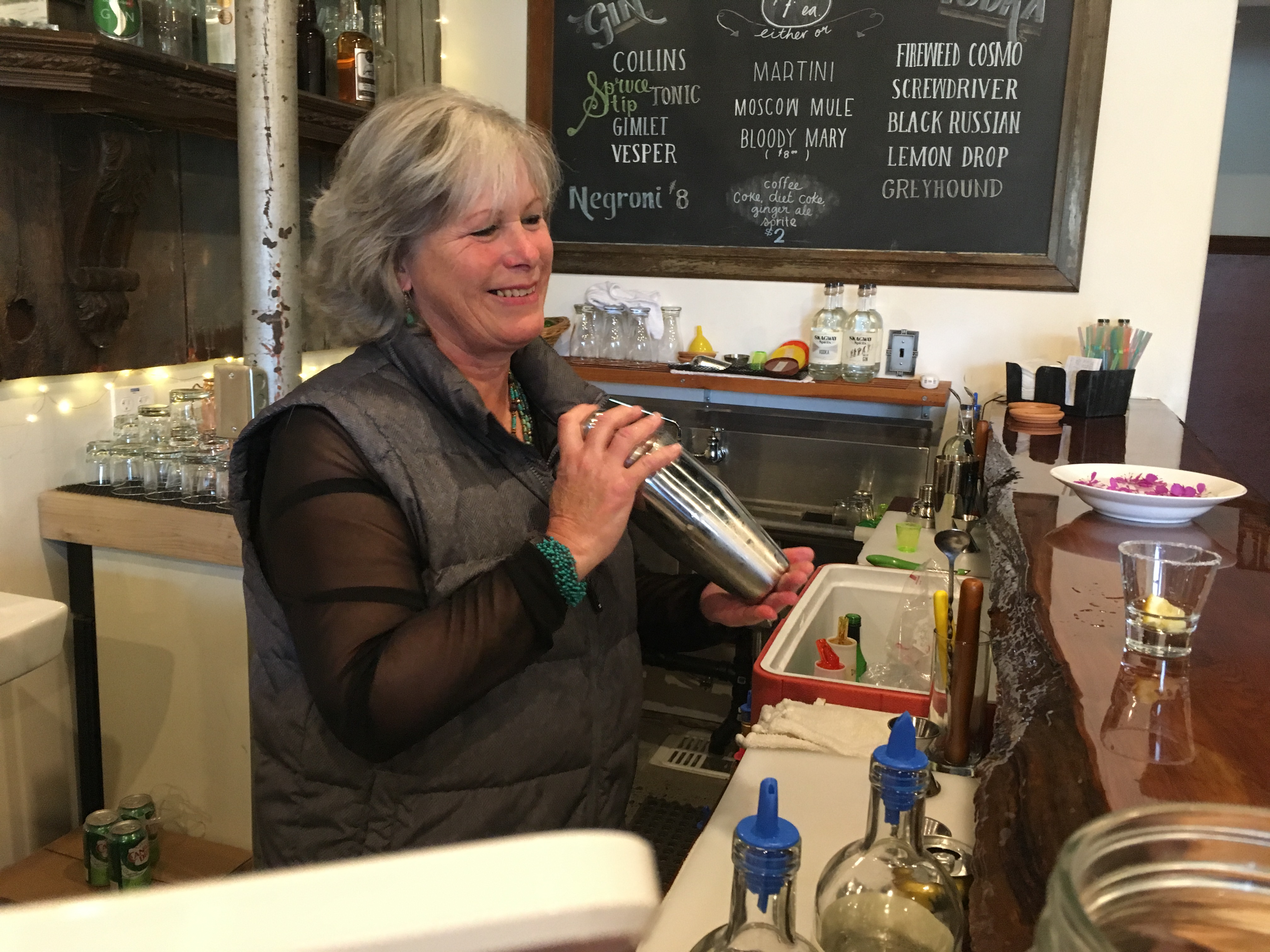
Alaska’s distilleries are bracing for a shift that will bring big changes to tasting rooms. On Tuesday, the Alcoholic Beverage Control Board adopted new regulations banning distilleries from serving cocktails – at least in the traditional sense.
The ABC Board voted 3-1 in favor of new regulations that mean no more gin and tonics, Moscow mules, negronis or other mixed drinks at Alaska’s distilleries.
“I understand this is a contentious issue,” ABC Board Director Erika McConnell said at Tuesday’s meeting. “And I understand this has a lot of impact on our nine distillery licensees.”
The rule, drafted by the Department of Law, clarifies what qualifies as a “distillery’s product.” That is, specifically a distilled spirit made on site.
It does not include ingredients like tonic, syrups, and juices used to mix drinks, even if they’re made on site.
Distilleries have been operating tasting rooms since they were legalized in 2014. And cocktails have been a part of the equation.
Janilyn Heger’s family owns Skagway Spirits, a distillery opened in the Northern Lynn Canal this summer. She worries about the new regulation significantly changing the experience of visiting her business.
“I know that all of the distillers are doing the same thing,” Heger said. “We’re harvesting local botanicals and we’re creating unique cocktails that are really showing off what we do in a unique environment. The whole thing is an experience. Part of that, at the very least, changes now with this decision.”
There is one catch with the new rule. It does allow mixers to be provided at distilleries. But staff can’t mix drinks behind the bar.
Assistant Attorney General Harriet Milks addressed the difference.
“An issue that the department of law raised was that if you mix the distillery’s distilled product with some other product, as long as you have, I think it’s one half of one percent alcohol, you have an alcoholic beverage and it’s your jurisdiction to regulate those alcoholic beverages,” Milks said.
So, you could get a ginger beer, lime and vodka – separately. But the customer would have to mix them together on their own if they wanted a Moscow Mule.
“We can make some fun out of it, I guess,” Heger said. “We can certainly make fun of this decision.”
Heather Shade, owner of the Port Chilkoot Distillery in Haines, says her tasting room is currently operating as normal, until they receive official notice. Though, it will be closed for a couple weeks for vacation starting Jan. 28.
Brandon Howard owns Amalga Distillery in Juneau.
“They’ve put in a wildly inconvenient contrivance that is so absurd it’s nearing comical,” Howard said. “The fact that I can put an ounce and a half of gin on the counter next to a glass of tonic and then the customer can take that ounce and a half of gin and pour it into the glass of tonic and that is fine.”
Howard is still hopeful cocktails will get back on the menu.
“It just goes to show how badly a legislative fix is needed,” Howard said. “I think it’s good for us to now focus our energies on seeing HB269 pass through.”
Howard’s referring to pending legislation introduced by Representative Chris Tuck. House Bill 269 would clarify in state law that distillers can combine the “distillery’s product” with other ingredients, giving cocktails the OK.
Legislators who signed onto the original tasting room bill in 2014 have said they never intended to prohibit the sale of mixed drinks.
Over 500 pages of public comments were submitted on the new regulations. At Tuesday’s meeting, Director McConnell said the majority of comments supported the continued sale of cocktails.
But Assistant Attorney General Milks told the board the quantity of comments should not define the response.
“Public comment is never a popularity contest,” Milks said. “And it’s never a numbers game. So somebody can generate 200 or 500 or 1,000 form letters. That doesn’t make those public comments worth of necessarily any more weight than you give the two or three independently written comments.”
The new rule is not in effect yet. The regulation still needs to be reviewed by the Department of Law and signed by the Lieutenant Governor.
It goes into effect 30 days after getting that signature.




